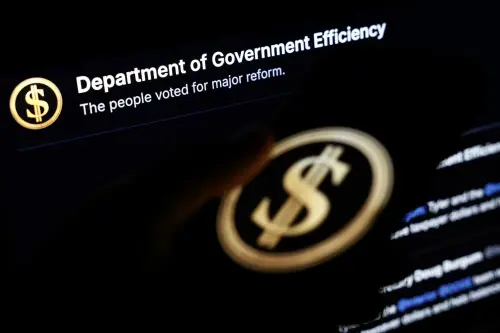During his Texas victory speech last night, Sen. Ted Cruz claimed that 65 percent of the Republican Party continues to prefer someone other than Donald Trump as its nominee. It turns out that he is absolutely right. In the 11 Republican Super Tuesday contests, Mr. Trump received 2.9 million votes in all—35.2 percent of the vote. Sen. Cruz tallied 2.5 million votes (29.9 percent), followed by Florida Sen. Marco Rubio with 1.9 million votes (22.5 percent) and Ohio Gov. John Kasich with 0.5 million (6.5 percent).
In basic political terms, a plurality victory for Mr. Trump is not an outcome the Republican Party should welcome. The most recent CNN/ORC survey showed Mr. Trump losing the general election to Hillary Clinton by 8 points, 52 to 44 percent. By contrast, the survey shows Sen. Cruz leading her by a point and Sen. Rubio beating her by 3 points, 50 to 47.
Republicans know this, or at least sense it. Sean Trende shows that in many Super Tuesday states, more voters would be satisfied with either Sen. Cruz or Sen. Rubio as their nominee than with Mr. Trump. But coupled with the intense minority support Trump enjoys, the continuing division of the field makes it more likely that this minority will prevail.
The problem, as Mr. Cruz observed, is that none of the New York billionaire’s remaining opponents shows any inclination to leave the race. So there is every chance the anti-Trump vote will remain divided up to the pivotal big-state races in March 15.
Despite the strong Trump tide on Super Tuesday, Sen. Cruz managed to prevail in his home state. But on March 15, if Mr. Trump beats Gov. Kasich in Ohio or Sen. Rubio in Florida, both winner-take-all primaries, it is game, set, and match for the most improbable Republican presidential nominee in modern times, perhaps ever. On the other hand, if the Ohio governor and the Florida senator emerge from March 15 in full control of their home-state delegations, the chances of a contested convention will rise appreciably. Still, the continuing division among the anti-Trump forces will make it harder for these favorite sons to defend their geographical base.
In the wake of Super Tuesday, it is even harder to see how anyone other than Trump can attain a majority of the delegates by the end of the primary season. Republicans who want to stop him had better start thinking about how to beat him in a multi-ballot convention fight.
The Brookings Institution is committed to quality, independence, and impact.
We are supported by a diverse array of funders. In line with our values and policies, each Brookings publication represents the sole views of its author(s).




Commentary
A majority of GOP doesn’t want Trump and why it might not matter
March 2, 2016